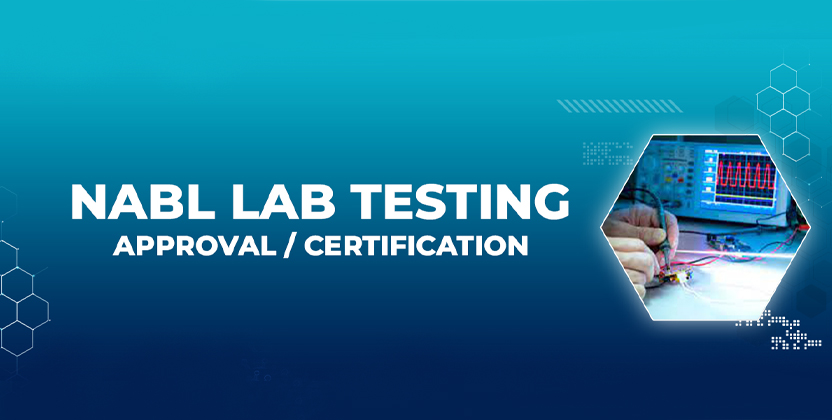Introduction
NABL stands for the National Accreditation Board for Testing and Calibration Laboratories. It is an autonomous body under the aegis of the Department of Science and Technology, Government of India, and is responsible for the accreditation of testing and calibration laboratories in India.
The primary objective of NABL is to provide a reliable and internationally recognized system for the assessment and accreditation of testing and calibration laboratories. This accreditation is based on internationally accepted standards, and it ensures that the laboratories operate to the highest levels of quality, competence, and impartiality.
NABL accreditation is essential for laboratories that provide testing, calibration, and measurement services. It provides an independent third-party assurance of the quality and technical competence of the laboratory's operations. NABL accreditation also enhances the credibility and acceptance of the laboratory's test reports and calibration certificates in national and international markets.
Overall, NABL accreditation is a significant step towards ensuring that testing and calibration laboratories in India meet internationally accepted standards and can provide reliable and accurate results.
NABL accreditation signifies a lab's technical competence for specific tests, following international standards like ISO/IEC 17025:2017. Accreditation involves rigorous evaluation of facilities, equipment, procedures, personnel, and management. Labs must maintain compliance through regular surveillance assessments, enhancing credibility and acceptance of their services. This assures quality, reliability, and adherence to global standards in testing and calibration.
Benefits of NABL Accreditation
- NABL accreditation instills greater trust in laboratory reports and activities.
- It facilitates effective management and ensures technical competence and a robust Quality Assurance System.
- Enhanced customer satisfaction and confidence often lead to increased business opportunities
- Customers can easily locate accredited laboratories through the NABL website or authorized directory
- Accreditation opens doors to broader domestic and international markets for laboratory users.
- Reduced or eliminated re-testing translates to significant time and financial savings.
Eligibility Criteria for NABL Approval
Institution Eligibility Criteria
CAB must align with ISO/IEC standards.
Personnel and Training Requirements
CAB needs training, compliance, and audit.
Process and Compliance Steps
Eligibility, rep, manual, training, alignment, participation, audit.
Documents Required for NABL Approval
- NABL 112- Criteria for medical laboratories.
- NABL 126- Specific Criteria for Medical Devices Calibration.
- NABL 151 for testing laboratories.
- NABL 152 for calibration laboratories.
- NABL 153 for medical laboratories.
- NABL 155 (Application form and Check List for NABL medical).
- NABL 160 Information related to the management of the quality system manual.
- NABL 180 for PTP.
- NABL 190 for RMP.
- NABL 100 General Information of NABL.
- NABL 219- Assessment forms and checklist for NABL (ISO/IEC 17025:2017).
- We will assist you with the procedure for NABL approval.
- Assistance with the documentation for NABL Approval.
- Types of institutions that have to apply for NABL Approval.
- End-to-end Support.
Procedure for NABL Approval
- Application submission with ISO-compliant quality manual.
- Payment of relevant fees and disclosure.
- Receipt of a unique identification number (UIN).
- Pre-assessment visit to assess CAB.
- Submission of assessment report.
- Formation of assessment team.
- Follow-up action within 60 days.
- Accreditation Committee recommendations.
- Certificate issuance with details.
- Clear outstanding payments.
- Maintain ISO compliance and NABL 131.
 Noida, Delhi NCR
Noida, Delhi NCR
 Mon-Sat : 09:30 AM - 06:00 PM
Mon-Sat : 09:30 AM - 06:00 PM



